2023 Volkswagen ID.4 First Drive Review: One for the home team

NASHVILLE, Tenn. — Volkswagen has moved production of the local-market ID.4 out of Germany to the Chattanooga, Tennessee, plant. The decision comes with a smattering of changes making the compact battery-electric crossover more amenable to the new home team, without altering the ID.4’s fundamentals. This 2023 ID.4 is subtly flashier bait, not different bait, to waggle in an EV pool that various manufacturers are setting with a growing number of hooks.
VW’s been feeding us these developments for months; all that was left was to get eyes on and drive. Cosmetic shifts like the new wheel designs, standard 20-inch wheels on the S trim, illuminated rear emblem, and additional cabin stitching occupy that design periphery known as “perceived quality.” It’s clear the 2023 model is a mite more decorous, it’s hard to figure out why without comparing model years side-by-side. We wouldn’t place bets on substantial numbers of buyers being swayed into a purchase due to these factors alone, but a bit more shine never hurts.
Functional changes glommed more of our attention, especially the redesigned center tunnel that’s no longer a series of dainty receptacles. Cupholders can clamp two American-sized beverages. The near-vertical wireless charging pad features a clip to hold the phone in place. Replacing the seat-mounted armrests is a stitched, leatherette-covered lid that serves as front-row armrest and cover to a capacious bin.
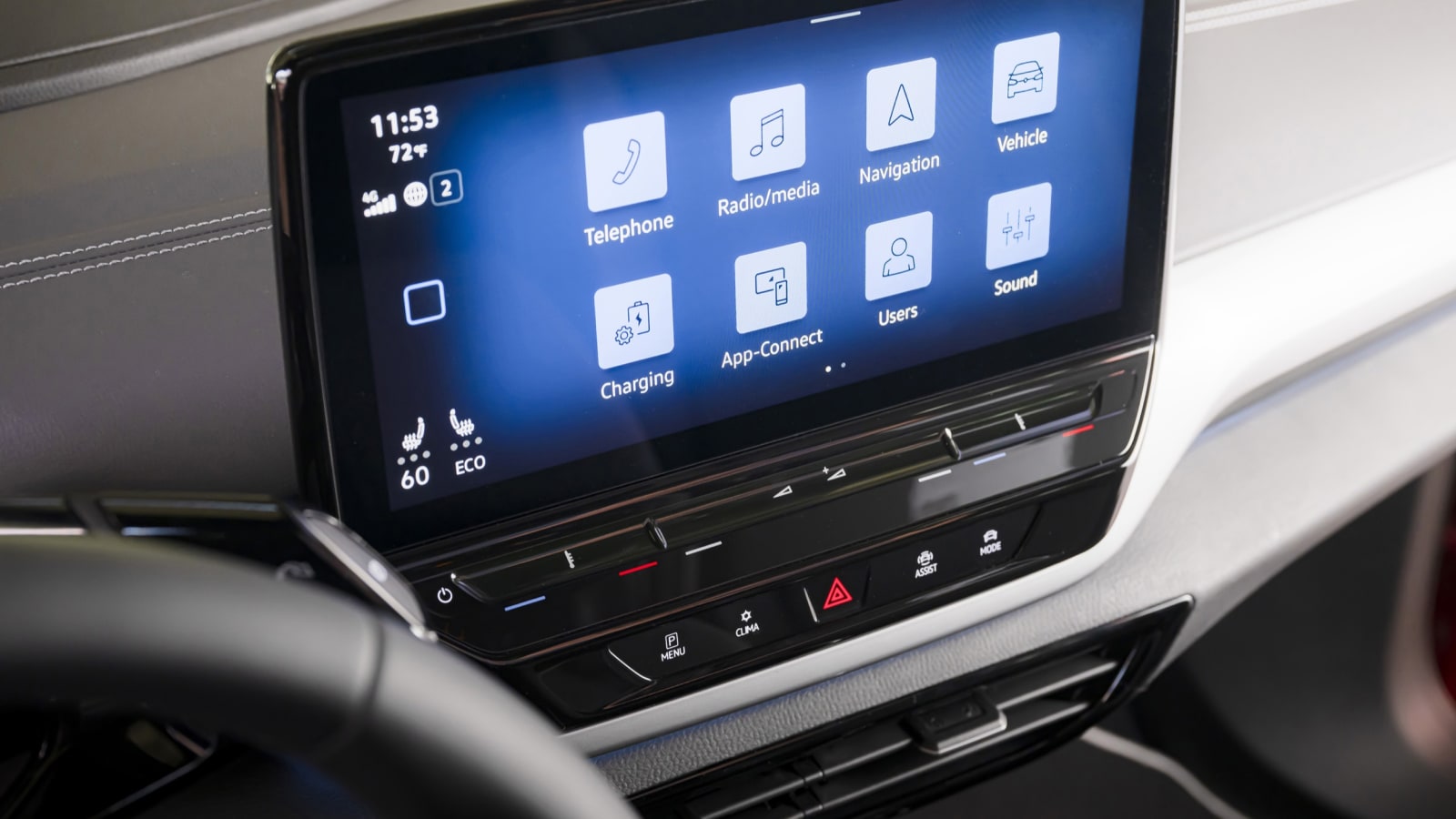
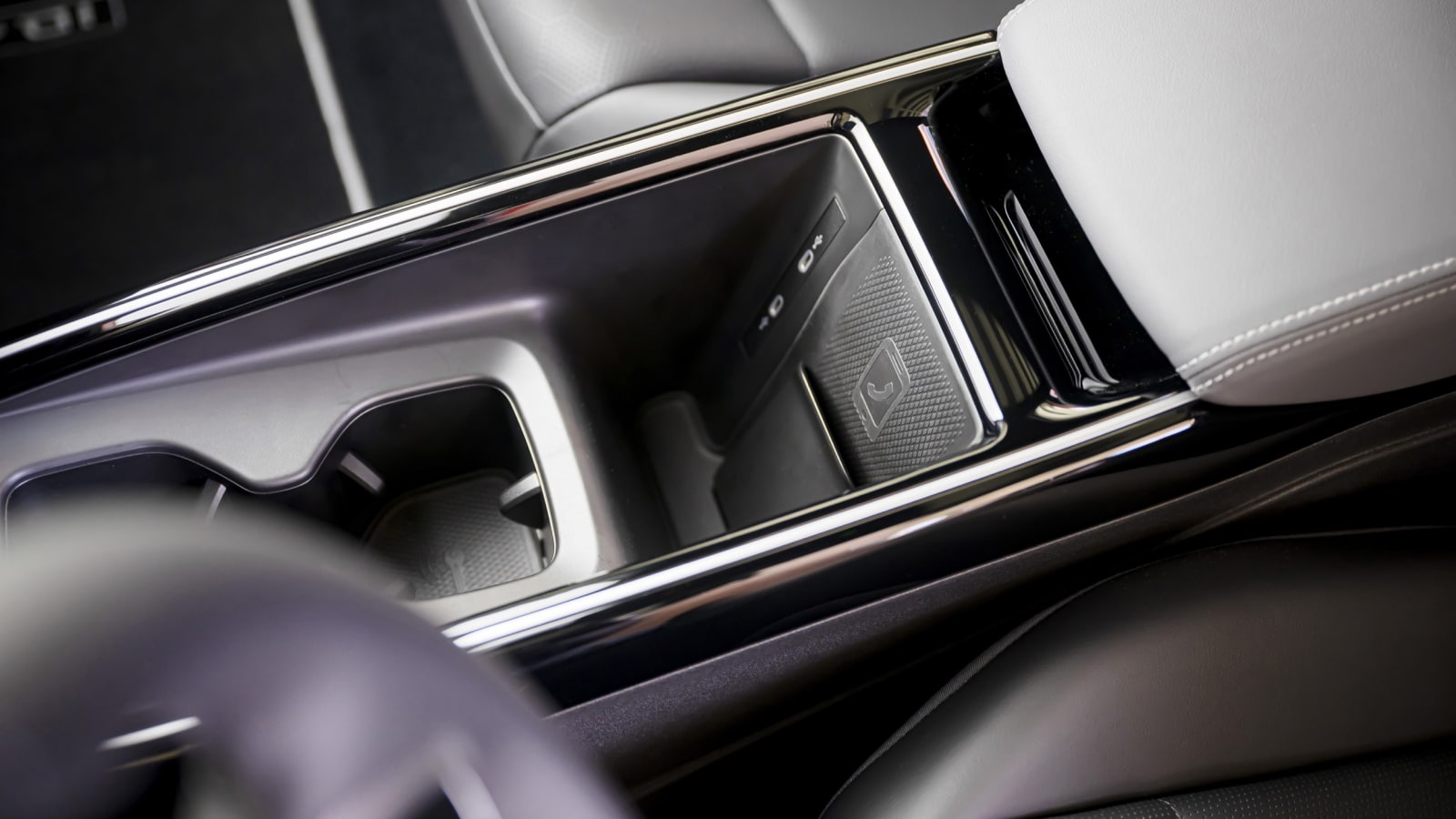
Putting the 12-inch infotainment system in every ID.4 is also a nice touch; leaving the infotainment software and capacitive buttons untouched is not as nice. However, the system doesn’t compel us into the fire and brimstone tirades composed by our colleague James Riswick. Is the interaction clunky in nearly every way? Yeah. Did we repeatedly turn on the hazards when resting our hands on the console to press buttons for other functions? Yeah. Is it suboptimal to have to look for the volume buttons every time, or need to press both the screen and buttons to change the climate control? Yeah.
And sure, other quizzical choices exacerbate the sense that VW is trying too hard around the cabin, either to save money or create an experience. The lack of dedicated switches for the rear windows? Regrettable. The lack of illumination for console buttons? Incomprehensible. Having the leading edge of the center tunnel end just ahead of the instrument panel to make room for a sensor that no one we asked could identify the purpose of? Strange. Learning you need to swipe your finger through a groove in the roof console to open and close the panoramic roof sunshade instead of toggling a switch? Ugh.
Are these deal-breakers? No. Owners will turn on the e-motor or two, dial in their settings and get down the road burning electrons. They’ll want to keep an eye on the speedometer, with the ID.4 quiet enough on the trot to do 80 miles per hour down the highway without making a wind-ruffled fuss.
Which brings us to the best thing about the ID.4: It’s a fun drive. Combined with its unstudied, Teutonic handsomeness and voluminous practicality, I would recommend the ID.4 despite its idiosyncrasies. Furthermore, ergonomic bonuses include comfy seats for all parties, not needing to slink around the B-pillar to get in the front seats, not needing to duck under the roof to get in the back, and finding plenty of headroom in back once ensconced.
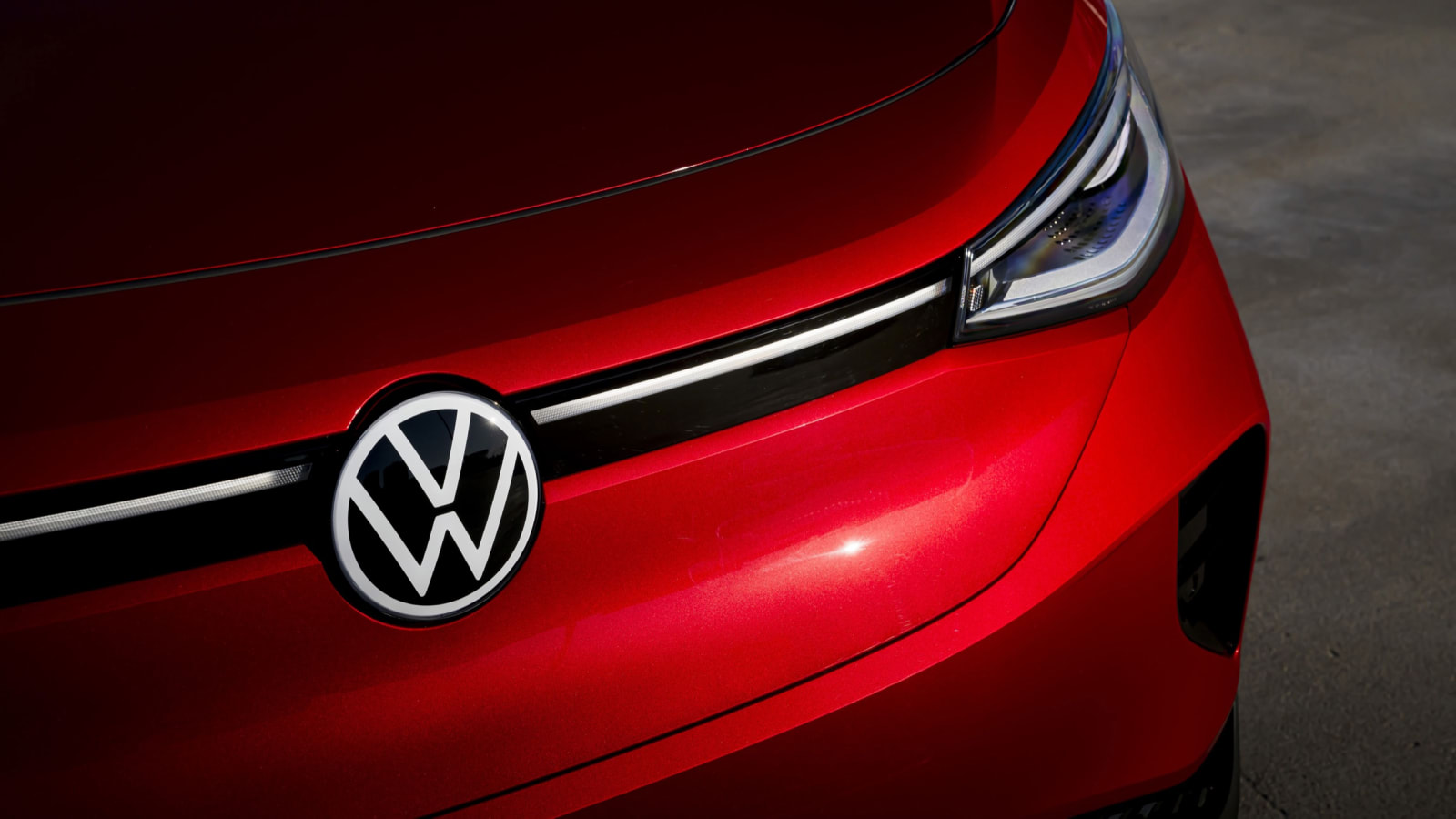
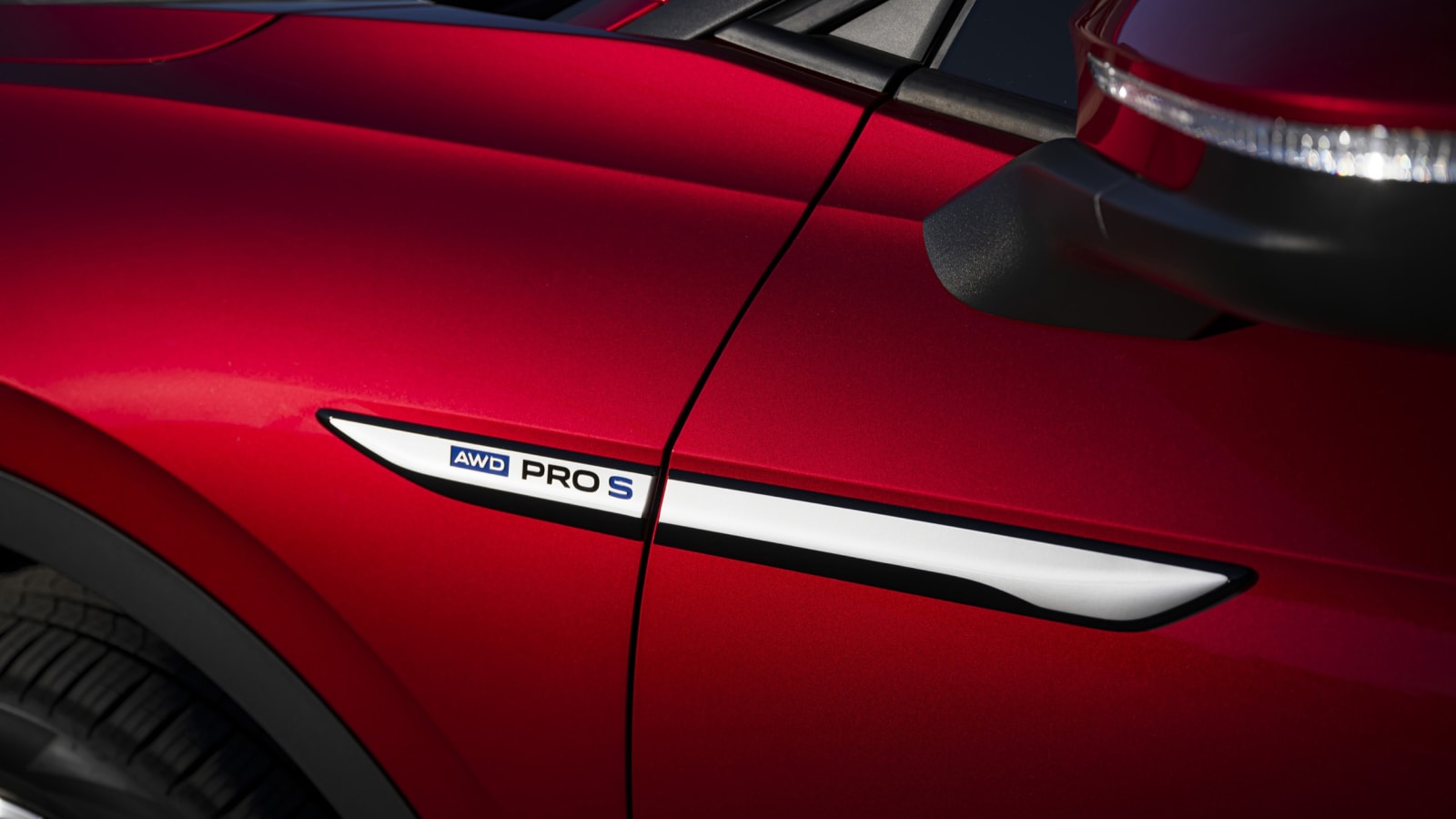
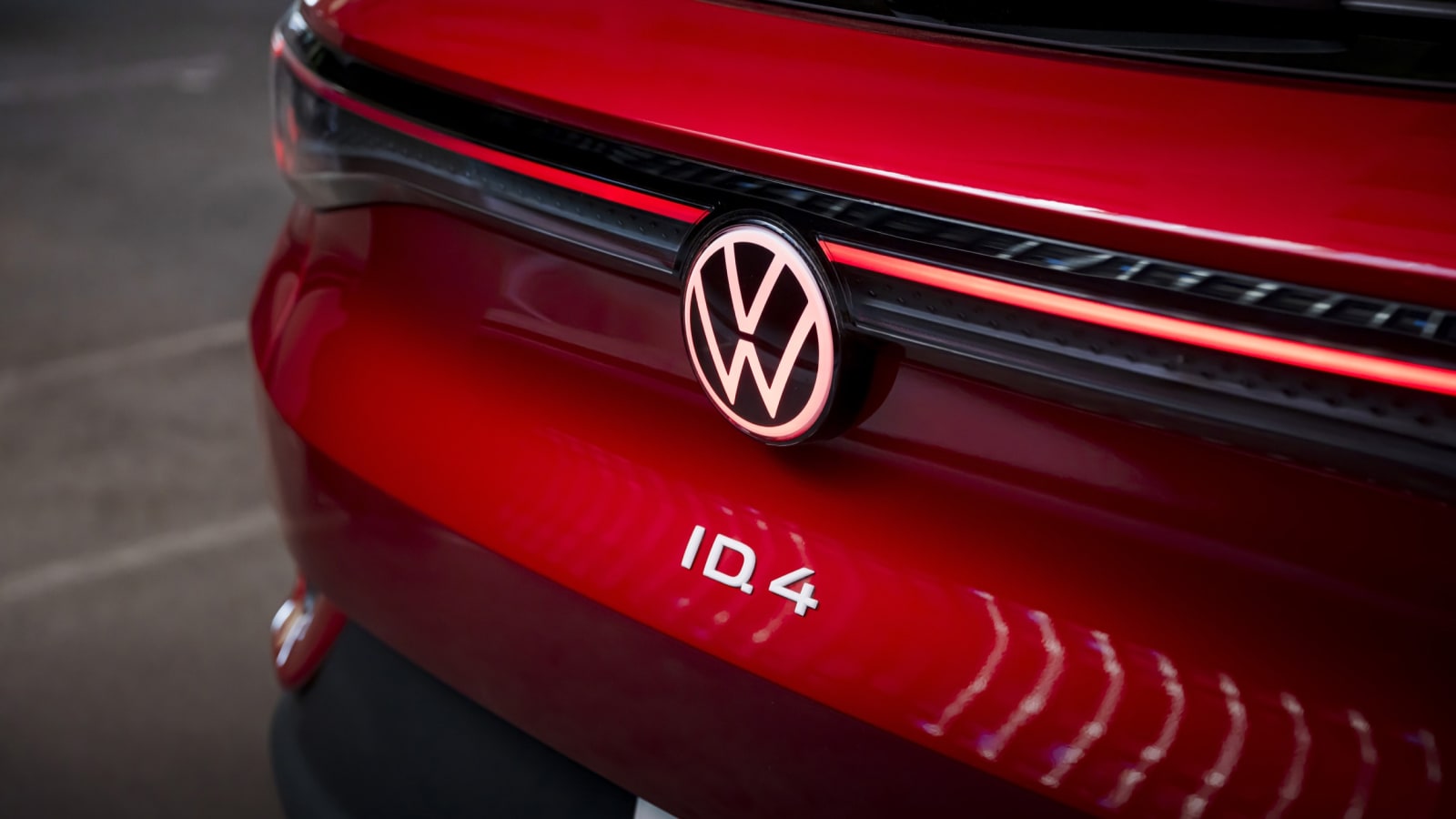
There are a few more blemishes. The ADAS system, operating almost entirely behind the scenes, would make cameos with a tiny tug at the steering wheel or an unexpected tap on the brakes. With hands-on driving, the ID.4’s steering is so direct it’s looking over the fence at twitchiness. Conversely, brake pedal travel is long enough to need a layover, with zero feeling in the first half of the arc followed by mush in the last. The throttle pedal programming finds the appropriate mean.
Here again, though, is a case of merits outweighing demerits. The two motors in the top-spec 2023 ID.4 AWD Pro S we drove produce a combined 295 horsepower and 328 pound-feet of torque. Compare that to the base 2022 Ford Mustang Mach-E Select with AWD that gets 266 hp and 428 lb-ft. Clearly, the VW isn’t a scorcher in the first rank of performance EVs. Rather, VW imbued the ID.4 with sufficient power for sufficient acceleration, prioritizing mostly Golf-like reflexes that deliver splendid handling. This beast of family burden loves a sweeper, the 235/50 Pirelli P-Zeroes refusing to squeal “Uncle” to our joyriding. The suspension kept all 4,788 pounds in check on snaking Tennessee back roads, a driver able to focus on the best line through esses connecting hill to dale instead of head-sway and bad composure. The dampers don’t like kinds of harsh bumps most often found among poorly patched city pavement, but that appears to be the only tradeoff for inherent fluidity in every other way.
The MSRP also helps counter unsavory notes. Our tester’s price started and ended at $52,590 after the $1,295 destination charge, before incentives. That sum counts everything including the new second row outboard heated seats and Park Assist Plus with Memory that stores parking spot locations and the required maneuvers to get in them. The asking price is on par with the Hyundai Ioniq 5 Limited AWD (which we love), but the VW has a tad more battery, power and cargo room, and just one mile less EPA estimated range.
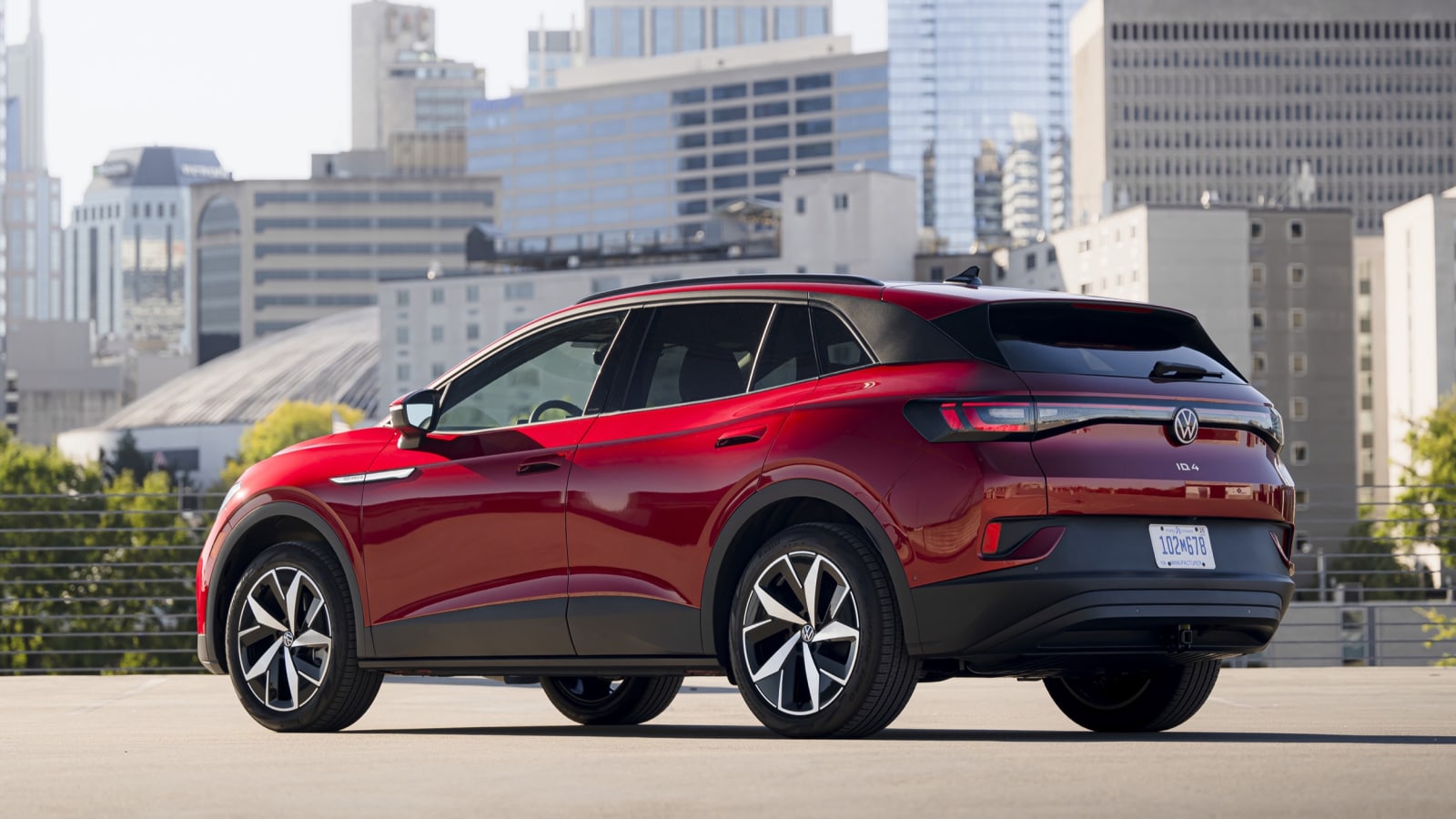
Shoppers who know they only need a local getabout could do even better with the new ID.4 Standard, pairing a smaller 62-kWh battery with a smaller $38,790 MSRP before incentives. The Standard sheds 230 pounds compared to the Pro trims, a VW rep telling us the diet improved the 60-mph acceleration in the Standard by 0.6 seconds over the Pro RWD. On a small city loop behind the wheel of a prototype ID.4 Standard, we felt the weight loss in nearly every phase of driving. We had no problems with the more muted interior, either. In fact, it the new finishing in the Pro calls attention to the gap between the flashier materials and the average plastics; this doesn’t happen in the Standard. And the Standard’s 209 miles of range can handle a day in any metro area.
The ID.4 isn’t an experiment nor a novelty, it’s alpha and omega to be nothing other than the Volkswagen of EVs. It succeeds, and much of where it falters could be fixed with a software update or two. Of the two tracks Volkswagen is taking to electrify America — the vehicles and the charging station company — this is the more rewarding one by far.
Related video:



